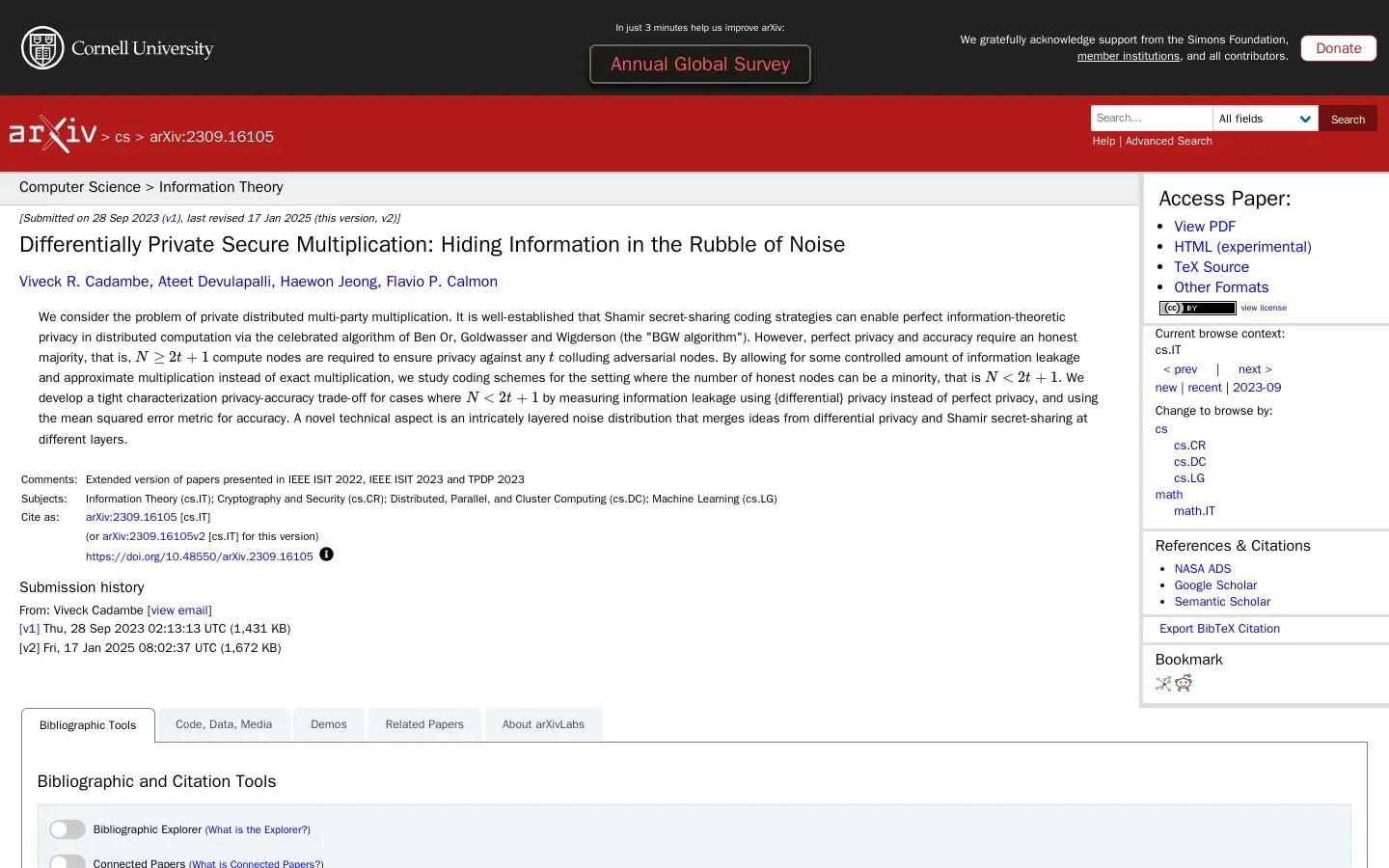New Method Enhances Privacy in Distributed Multiplication
/ 1 min read
🔊 New approach to secure distributed multiplication enhances privacy with noise. Researchers propose a novel coding scheme for private distributed multi-party multiplication that allows for a minority of honest nodes, challenging the traditional requirement of an honest majority. By integrating differential privacy with Shamir secret-sharing, the study establishes a privacy-accuracy trade-off that permits controlled information leakage and approximate multiplication. This method employs a complex noise distribution to balance privacy and accuracy, measured through mean squared error, offering a potential solution for scenarios where the number of honest nodes is less than twice the number of colluding adversaries. This advancement could significantly impact secure computations in distributed systems.
